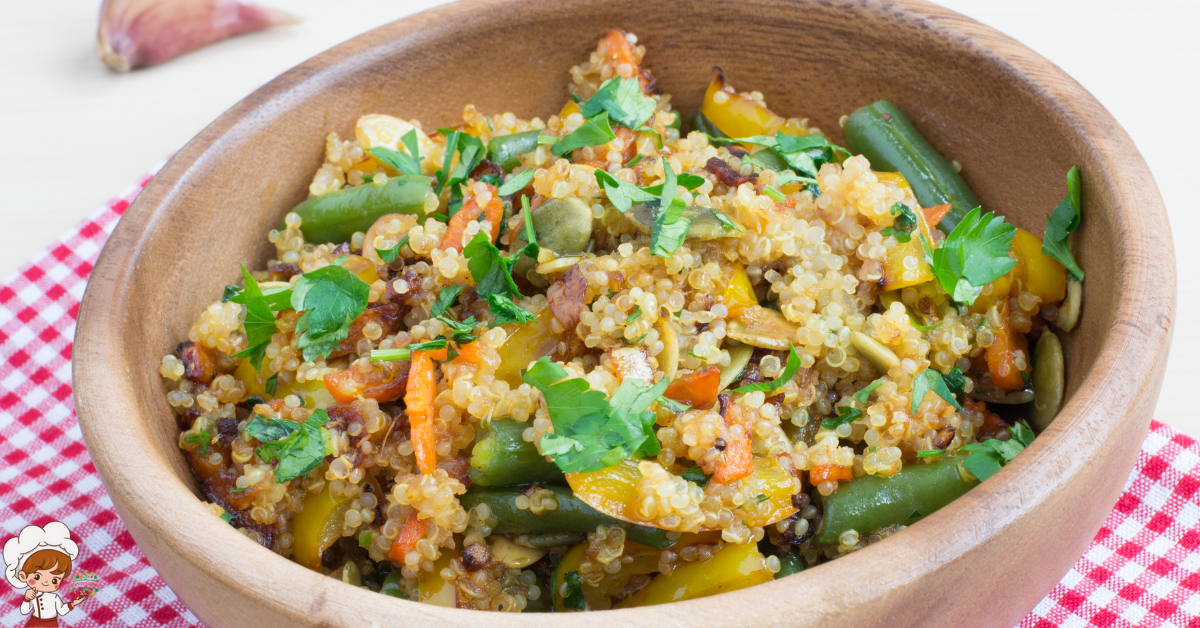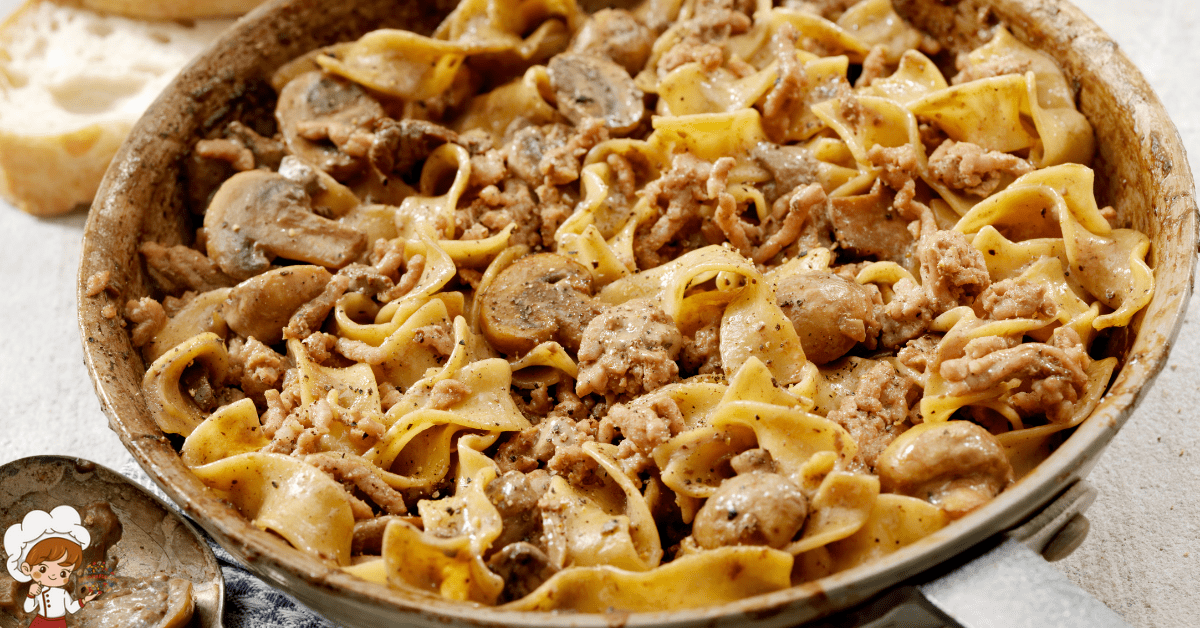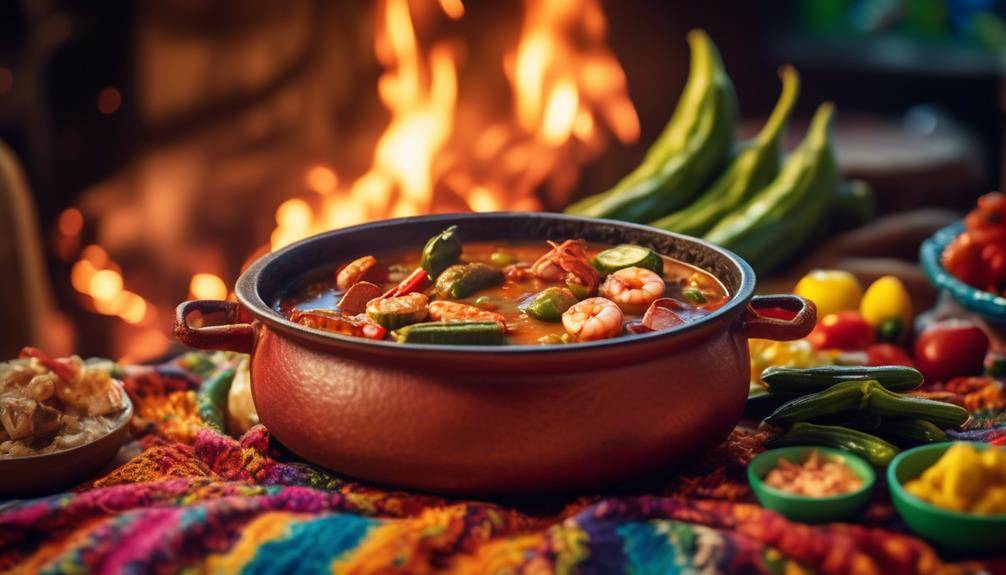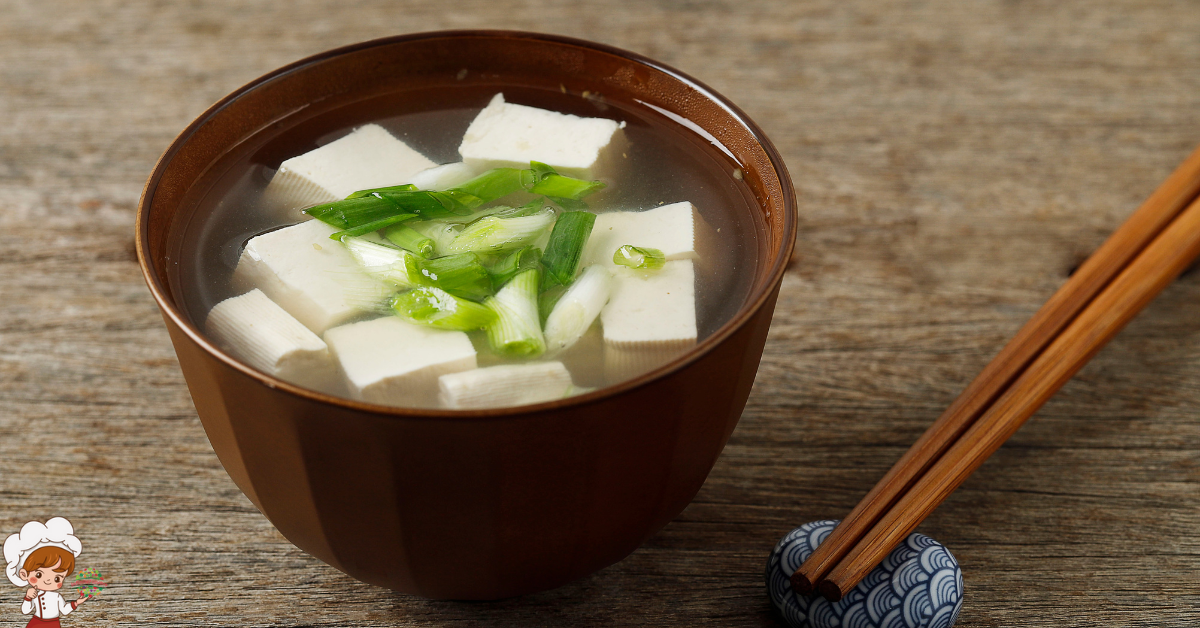Important Vegan Dietary Requirements for Kids
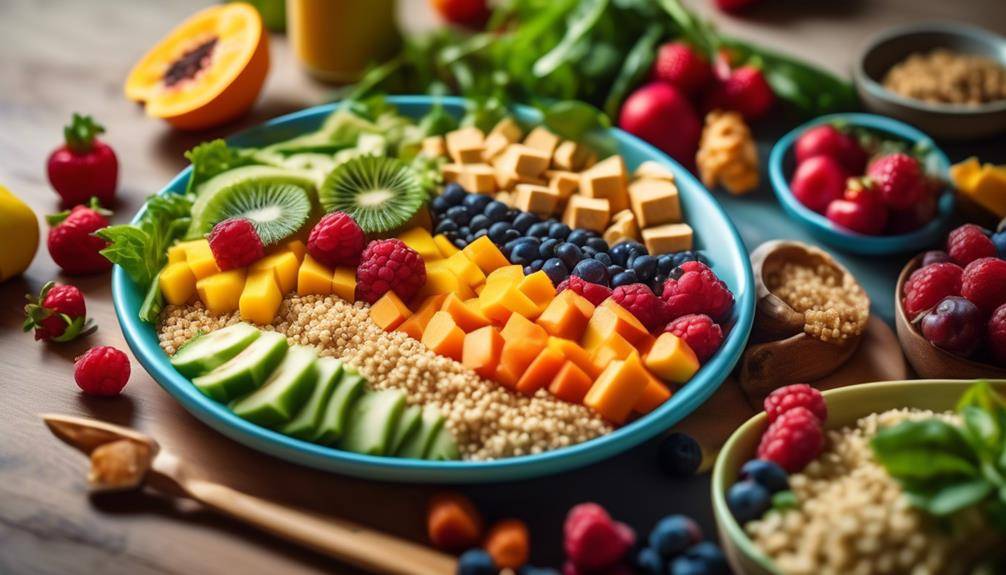
Important Vegan Dietary Requirements for Kids; As you navigate the maze of parenting, you strive to plant the seeds of health and wellness in your children. But as you contemplate the world of veganism, you may find yourself wondering: Can kids thrive on a plant-based diet? Well, brace yourself, because in this discussion, we will uncover the essential dietary requirements for vegan kids, diving into the realm of protein sources, vitamins, calcium needs, iron-rich foods, and so much more. So, are you ready to discover how to nourish your little ones with the power of plants? Get ready to embark on a journey of nutritional enlightenment.
Protein Sources for Vegan Kids
To ensure that vegan kids receive adequate protein in their diets, it is important to explore various plant-based sources that are rich in this essential nutrient. Protein is crucial for the growth and development of children, as it helps build and repair tissues, supports immune function, and provides energy. While some may argue that it is difficult to meet protein requirements on a vegan diet, there are actually plenty of options available.
One excellent source of vegan protein is legumes, including beans, lentils, and chickpeas. These plant-based foods are not only high in protein but also rich in fiber, vitamins, and minerals. They can be incorporated into a variety of dishes such as soups, stews, salads, and even burgers.
Another great option is tofu and tempeh, which are made from soybeans. These soy-based products offer a complete source of protein, meaning they contain all the essential amino acids that the body needs. Tofu can be stir-fried, baked, or grilled, while tempeh works well in sandwiches, stir-fries, and as a meat substitute in various recipes.
Nuts and seeds are also valuable sources of protein for vegan kids. Almonds, walnuts, chia seeds, and hemp seeds are all excellent choices. They can be eaten as a snack, added to smoothies, or used as toppings for oatmeal or yogurt.
It is important to note that vegan protein options should be varied and combined throughout the day to ensure all essential amino acids are obtained. Additionally, consulting with a healthcare professional or registered dietitian can help ensure that vegan kids meet their protein requirements and maintain a balanced diet.
Essential Vitamins for Vegan Children
When it comes to raising vegan children, ensuring they receive essential vitamins is crucial. Key nutrient requirements like vitamin B12, iron, calcium, and vitamin D can be obtained from plant-based sources such as fortified foods, supplements, and a well-balanced vegan diet. Considering the potential risk of deficiencies, it’s important to consult with a healthcare professional to determine if supplementation is necessary to meet your child’s nutritional needs.
Key Nutrient Requirements
Vegan children require essential vitamins to meet their key nutrient requirements. While a vegan diet can provide all the necessary nutrients for growth and development, it is important to ensure that children receive adequate amounts of certain vitamins. One essential nutrient for vegan children is vitamin B12, as it is primarily found in animal-based foods. Fortified plant-based foods or supplements can be used to meet their vitamin B12 needs.
Another important vitamin is vitamin D, which helps in the absorption of calcium and plays a crucial role in bone health. Sunlight exposure and fortified plant-based milk alternatives can help meet vitamin D requirements. Additionally, ensuring sufficient intake of iron, zinc, calcium, and omega-3 fatty acids can help support the overall health and development of vegan children.
Plant-Based Sources
When it comes to meeting the essential vitamin needs of vegan children, it is important to explore plant-based sources that can provide these vital nutrients. Here are three key plant-based sources that can help ensure your child gets the necessary vitamins:
- Plant-Based Protein: Foods like tofu, lentils, quinoa, and chia seeds are excellent sources of protein for vegan children. Protein is essential for growth and development and can be easily obtained from these plant-based sources.
- Vegan Vitamin Sources: Certain vitamins can be challenging to obtain on a vegan diet, but they are still essential for your child’s health. To ensure an adequate intake, include foods like fortified plant-based milk, fortified cereals, and nutritional yeast in their diet. These foods are good sources of vitamins like B12, calcium, and vitamin D.
- Nutrient-Dense Fruits and Vegetables: Encourage your child to eat a variety of fruits and vegetables to ensure they receive a wide range of vitamins and minerals. Dark leafy greens, citrus fruits, and berries are particularly rich in important vitamins.
Supplementation Considerations
Consider supplementing your child’s vegan diet with essential vitamins to ensure they are getting all the necessary nutrients for optimal health. While a well-planned vegan diet can provide most of the nutrients children need, there are certain vitamins that may be more challenging to obtain from plant-based sources alone. Two key vitamins to consider supplementing are vitamin B12 and vitamin D.
Vitamin B12 is primarily found in animal products, making it difficult for vegans to obtain adequate amounts. It is essential for neurological development and the production of red blood cells. A daily supplementation dosage of 250-500 mcg is recommended for vegan children to meet their needs.
Vitamin D is crucial for bone health and the absorption of calcium. It can be obtained from sunlight exposure, fortified plant-based milk, and supplements. A daily supplementation dosage of 600-1000 IU is generally recommended for children, but consult your healthcare provider for the appropriate dosage based on your child’s specific needs.
When supplementing, it is important to monitor for potential side effects and discuss any concerns with a healthcare professional.
Meeting Calcium Needs on a Vegan Diet
To meet your child’s calcium needs on a vegan diet, it’s important to include calcium-rich foods in their meals and snacks. Foods like fortified plant-based milk, tofu, leafy greens, and almonds are excellent sources of calcium. If your child has difficulty getting enough calcium from food alone, you can consider giving them a vegan calcium supplement to ensure they meet their daily requirements.
Vegan Calcium-Rich Foods
Meeting the calcium needs of children on a vegan diet can be achieved through incorporating a variety of calcium-rich plant-based foods into their meals. It is important to ensure that vegan children are getting enough calcium as it plays a crucial role in the development of strong and healthy bones. Here are three excellent sources of calcium for vegan kids:
- Leafy green vegetables: Foods like kale, broccoli, and spinach are packed with calcium and are easily incorporated into meals. Try adding them to smoothies, salads, or stir-fries.
- Fortified plant-based milk: Many plant-based milk alternatives, such as almond, soy, and oat milk, are fortified with calcium. These can be used in place of cow’s milk to ensure an adequate calcium intake.
- Tofu and tempeh: These soy-based products are not only rich in protein but also contain a good amount of calcium. They can be used in a variety of dishes, from stir-fries to sandwiches.
Vegan Calcium Supplements
To ensure optimal calcium intake for vegan children, exploring the option of vegan calcium supplements can be beneficial in meeting their dietary needs. While it is possible to obtain calcium from plant-based sources, some children may have difficulty meeting their calcium requirements solely through their diet. Vegan calcium supplements offer a convenient and reliable way to bridge this gap and ensure adequate calcium intake.
When choosing a vegan calcium supplement, it is important to consider its bioavailability. Calcium carbonate and calcium citrate are commonly used forms of calcium in supplements, and both are well-absorbed by the body. Additionally, some vegan calcium supplements may contain added vitamin D, which aids in calcium absorption.
It is recommended to consult with a healthcare professional or registered dietitian before starting any supplements, as they can provide personalized guidance based on your child’s specific needs. Regular monitoring of calcium levels can also help ensure that calcium requirements are being met effectively.
Iron-Rich Foods for Vegan Kids
Iron-rich foods are essential for vegan kids to ensure they meet their dietary requirements. As a parent, it is important to provide your child with a variety of plant-based foods that are high in iron. Here are three iron-rich foods that can easily be incorporated into your child’s diet:
- Legumes: Legumes such as lentils, chickpeas, and black beans are excellent sources of iron for vegan kids. They are not only packed with iron but also contain fiber and protein, making them a nutritious addition to meals. You can include legumes in soups, stews, salads, or even make delicious veggie burgers using them.
- Dark leafy greens: Vegetables like spinach, kale, and Swiss chard are rich in iron and other essential nutrients. These leafy greens can be added to smoothies, stir-fries, or sautéed as a side dish. Incorporating them into your child’s meals will not only increase their iron intake but also provide them with vitamins and minerals.
- Fortified foods: Many plant-based foods are fortified with iron to ensure vegan kids meet their daily requirements. Look for iron-fortified cereals, bread, or plant-based milk alternatives. These fortified foods can be a convenient and easy way to boost your child’s iron intake.
The Importance of Vitamin B12 for Vegan Children
Vegan children need to be aware of the importance of incorporating vitamin B12 into their diets to meet their nutritional needs. Vitamin B12 plays a crucial role in their growth and cognitive development. As a vegan, it can be challenging to obtain enough vitamin B12 because it is primarily found in animal products. However, there are vegan-friendly sources of vitamin B12, such as fortified plant-based milks, breakfast cereals, and nutritional yeast.
Vitamin B12 is necessary for the production of red blood cells and DNA, which are crucial for vegan children’s growth. It also plays a significant role in maintaining a healthy nervous system, which is essential for their cognitive development. Without sufficient vitamin B12, children may experience fatigue, weakness, and difficulty concentrating.
It is important for vegan children to have their vitamin B12 levels regularly checked by a healthcare professional. If their levels are low, supplementation may be necessary to ensure they are meeting their nutritional needs. Vitamin B12 supplements are available in various forms, including tablets, sprays, and fortified foods.
In addition to incorporating vitamin B12-rich foods and supplements into their diets, it is also important for vegan children to have a well-balanced and varied diet. This will help ensure they are getting all the necessary nutrients for their growth and cognitive development. Encouraging them to eat a wide range of fruits, vegetables, whole grains, legumes, and plant-based proteins will provide them with the necessary nutrients for their overall health and well-being.
Healthy Fats for Vegan Kids
In order to ensure the optimal nutrition for vegan children, it is important to address their dietary needs, including the incorporation of healthy fats into their diets. While fats are often associated with negative health effects, it is crucial to recognize that not all fats are created equal. Healthy fats provide essential nutrients and contribute to the proper growth and development of children. Here are three important sources of healthy fats for vegan kids:
- Avocado: Avocados are a great source of monounsaturated fats, which are known to support heart health. They are also rich in vitamins, minerals, and fiber. Adding slices of avocado to sandwiches or using it as a spread can provide a creamy and nutritious addition to your child’s meals.
- Nuts and seeds: Almonds, walnuts, flaxseeds, and chia seeds are excellent sources of healthy fats. They contain omega-3 fatty acids, which are essential for brain development and function. Incorporating these into your child’s diet can be as simple as sprinkling them on top of oatmeal or blending them into a smoothie.
- Coconut products: Coconut oil and coconut milk are popular choices among vegans for their rich flavor and versatility. Coconut oil is high in saturated fat, but it is a plant-based fat and can be a part of a balanced diet. Coconut milk can be used in cooking, baking, or as a dairy-free alternative to milk.
Fiber-Rich Foods in a Vegan Diet
To ensure a well-rounded vegan diet for your child, incorporating fiber-rich foods is essential. A fiber-rich diet offers numerous benefits for vegan children, including improved digestion, increased satiety, and better regulation of blood sugar levels. Fiber also helps maintain a healthy weight and reduces the risk of chronic diseases such as heart disease, diabetes, and certain types of cancer.
There are several easy ways to increase fiber intake in your child’s vegan diet. One simple method is to include a variety of fruits and vegetables in their meals and snacks. These plant-based foods are naturally high in fiber and provide a wide range of essential nutrients. For example, you can add sliced apples or berries to their breakfast cereal, include a side of steamed broccoli or carrots with their lunch, and serve a salad or roasted vegetables with their dinner.
Whole grains are another excellent source of fiber for vegan children. Opt for whole grain bread, pasta, and rice instead of their refined counterparts. Incorporating whole grains into your child’s diet can be as easy as swapping white bread for whole wheat bread or serving brown rice instead of white rice.
Legumes, such as beans, lentils, and chickpeas, are also rich in fiber and can be included in various dishes. You can add them to soups, stews, and salads, or use them as a base for veggie burgers or spreads like hummus.
Lastly, encourage your child to snack on nuts and seeds, which are not only high in fiber but also provide healthy fats and protein. Almonds, chia seeds, and flaxseeds are excellent choices.
Ensuring Adequate Calorie Intake for Vegan Kids
Ensuring that your child consumes an adequate number of calories is crucial when following a vegan diet. While a vegan diet can provide all the necessary nutrients for your child’s growth and development, it is important to pay attention to their calorie requirements and nutrient balance. Here are three key points to consider:
- Calorie Requirements: Vegan diets can be lower in calories compared to diets that include animal products. To meet your child’s calorie needs, make sure to include energy-dense foods such as nuts, seeds, avocados, and plant-based oils. These foods are rich in healthy fats and can help increase calorie intake without compromising nutrient balance.
- Nutrient Balance: It’s essential to ensure that your child’s vegan diet includes a variety of foods to provide all the necessary nutrients. Include a good mix of fruits, vegetables, whole grains, legumes, nuts, and seeds. To increase calorie intake, focus on nutrient-dense foods like quinoa, lentils, tofu, and fortified plant-based milks. These foods provide not only calories but also essential nutrients like protein, iron, calcium, and vitamin B12.
- Regular Meals and Snacks: Encourage your child to have regular meals and snacks throughout the day to meet their calorie needs. Include a variety of food groups in each meal to ensure a balanced intake of nutrients. Offer healthy snacks like fruit, homemade energy bars, or veggie sticks with hummus to provide additional calories and nutrients between meals.
Plant-Based Sources of Omega-3 Fatty Acids
If you’re raising your child on a vegan diet, it’s important to ensure they’re getting enough omega-3 fatty acids, which play a crucial role in their growth and development. Thankfully, there are several plant-based sources of omega-3s that you can incorporate into their diet. These include flaxseeds, chia seeds, hemp seeds, walnuts, and algae-based supplements.
Vegan Omega-3 Sources
Plant-based sources of omega-3 fatty acids are essential for meeting the dietary requirements of vegan children. While fish is often considered the primary source of omega-3s, there are several plant-based alternatives that can provide the same benefits. Here are three vegan omega-3 sources you can incorporate into your child’s diet:
- Flaxseeds: These tiny seeds are packed with omega-3 fatty acids. You can grind them and add them to smoothies, oatmeal, or baked goods for an extra nutritional boost.
- Chia seeds: Another great source of omega-3s, chia seeds can be sprinkled on top of yogurt, mixed into puddings, or used as an egg substitute in baking recipes.
- Walnuts: Not only are walnuts a delicious snack, but they also contain omega-3 fatty acids. You can add them to salads, trail mixes, or use them as a topping for oatmeal or cereal.
Importance of Omega-3
Incorporating plant-based sources of omega-3 fatty acids into your child’s diet is crucial for their overall health and well-being. Omega-3 fatty acids are essential nutrients that play a vital role in brain development and function. One specific type of omega-3 fatty acid, known as docosahexaenoic acid (DHA), is particularly important for cognitive and visual development in children.
While many people associate omega-3s with fish and seafood, there are plenty of vegan options available that can provide an adequate amount of these essential fatty acids. Some excellent plant-based sources of omega-3s include flaxseeds, chia seeds, hemp seeds, walnuts, and algae-based supplements.
It’s important to note that while these vegan sources of omega-3s can provide the necessary nutrition, it may be beneficial to consult with a healthcare professional or registered dietitian to ensure your child is getting an appropriate amount of DHA. They can provide guidance on suitable vegan omega-3 supplements and help create a well-balanced diet plan for your child’s specific needs.
Omega-3 Supplements
To ensure your child receives an adequate amount of omega-3 fatty acids on a vegan diet, consider incorporating plant-based sources of these essential nutrients and exploring omega-3 supplements. Omega-3 fatty acids play a crucial role in brain development and function, as well as supporting heart health. While many people think that fish is the only source of omega-3s, there are several plant-based options available. Here are three plant-based sources of omega-3 fatty acids:
- Flaxseeds: These tiny seeds are packed with omega-3s, fiber, and antioxidants. You can grind them and add them to smoothies, oatmeal, or baked goods.
- Chia seeds: These versatile seeds are also rich in omega-3s and can be sprinkled on top of yogurt, cereal, or salads. You can also use them to make chia seed pudding.
- Walnuts: These nuts are not only delicious but also contain a good amount of omega-3 fatty acids. They can be eaten as a snack or added to salads and baked goods.
If you’re concerned that your child may not be getting enough omega-3s from their diet alone, omega-3 supplements can be a helpful addition. When considering supplement dosage, it’s important to consult with a healthcare professional to determine the appropriate amount for your child. Omega-3 supplements can provide the necessary omega-3 fatty acids to support your child’s growth and development, and reap the benefits of omega-3s for their overall health.
Supporting Bone Health in Vegan Children
Ensuring strong and healthy bones is essential for vegan children. While a vegan diet can provide all the necessary nutrients for bone health, there are a few considerations to keep in mind. One important nutrient is calcium, which is crucial for bone development and maintenance. Vegan children can obtain calcium from plant-based sources such as fortified plant milks, tofu, leafy green vegetables, and calcium-fortified foods. It’s important to ensure that your child consumes an adequate amount of these calcium-rich foods to support their bone health.
Another factor to consider is vegan calcium absorption. Plant foods may contain substances that can inhibit calcium absorption, such as oxalates and phytates. However, consuming a varied diet that includes a wide range of calcium-rich foods can help overcome these inhibitors and ensure adequate calcium absorption. Additionally, consuming foods high in vitamin C, such as citrus fruits and berries, can enhance calcium absorption.
Iron is another important nutrient for bone health, as it plays a role in collagen formation, which is an essential component of bone. Vegan children can obtain iron from plant-based sources such as legumes, whole grains, nuts, and seeds. To enhance iron absorption, it’s beneficial to consume these iron-rich foods with vitamin C-rich foods, as vitamin C enhances iron absorption.
Vegan Alternatives to Dairy Products
Vegan children have a variety of dairy-free alternatives available to them. These alternatives provide the necessary nutrients found in dairy products without the use of animal-based ingredients. Here are three vegan alternatives to dairy products that can be included in a child’s diet:
- Vegan Milk Alternatives: Instead of cow’s milk, vegan children can opt for plant-based milk alternatives such as soy milk, almond milk, or oat milk. These alternatives are fortified with calcium, vitamin D, and other essential nutrients to support bone health and growth. They can be used in cooking, baking, or enjoyed on their own.
- Vegan Cheese Substitutes: While traditional cheese is made from milk, there are several vegan cheese substitutes available. These options are usually made from nuts, soy, or tapioca starch, and come in a variety of flavors and textures. Vegan cheese substitutes can be used in sandwiches, pizzas, or as a topping for pasta to add a cheesy taste without the use of dairy.
- Yogurt Alternatives: Yogurt is a popular dairy product, but vegan children can enjoy dairy-free yogurt alternatives made from soy, coconut, or almond milk. These alternatives are rich in probiotics, calcium, and protein, which are important for gut health and overall well-being.
It is essential to ensure that these alternatives are fortified with calcium, vitamin D, and other essential nutrients to meet the nutritional needs of growing children. Reading labels and consulting with a healthcare professional or registered dietitian can help in choosing the most suitable options for a child’s diet.
Practical Tips for Meal Planning and Preparation for Vegan Kids
When meal planning and preparing for vegan kids, it is important to consider their nutritional needs and preferences to ensure a balanced and enjoyable diet. Here are some practical tips for meal planning and preparation for vegan kids:
- Start with a variety of plant-based foods: Include a variety of fruits, vegetables, whole grains, legumes, nuts, and seeds in your child’s diet. This will ensure they get all the essential nutrients they need.
- Plan meals in advance: Take some time each week to plan your child’s meals. This will help you make sure they are getting a balanced diet and will also save you time and stress during the week.
- Get creative with meal ideas: Explore new recipes and experiment with different flavors and textures to keep your child excited about their meals. Try making vegan versions of their favorite dishes or introduce them to new plant-based foods they haven’t tried before.
- Involve your child in meal preparation: Let your child help you in the kitchen. This will not only teach them valuable cooking skills but also make them more excited and invested in their meals.
- Stock up on pantry staples: Keep your pantry stocked with vegan staples like grains, beans, lentils, nut butter, plant-based milk, and spices. Having these ingredients on hand will make it easier to whip up quick and nutritious meals.
- Pack nutritious snacks: Prepare healthy snacks like cut-up fruits, vegetable sticks, homemade granola bars, or trail mix for your child to take to school or for outings. This will ensure they have nutritious options when hunger strikes.
Frequently Asked Questions: Important Vegan Dietary Requirements for Kids
Can Vegan Kids Meet Their Protein Needs Without Consuming Animal Products?
You can meet your protein needs on a vegan diet without consuming animal products. There are plenty of vegan protein sources, and as long as you eat a variety of plant-based foods, you can easily meet your vegan protein requirements.
What Are Some Good Sources of Iron for Vegan Children?
You can find iron in a variety of plant-based foods, such as lentils, spinach, tofu, and fortified cereals. These iron-rich foods are great sources of iron for vegan children and can help meet their dietary needs.
How Can Vegan Children Get Enough Calcium Without Consuming Dairy Products?
Is it possible for vegan children to meet their calcium needs through plant-based sources alone? While supplementation may be necessary, there are plenty of plant-based foods like tofu, almonds, and leafy greens that can help them get enough calcium.
Are There Any Vegan Alternatives to Dairy Products That Can Provide the Same Nutritional Benefits?
There are plenty of vegan alternatives to dairy products that can provide the same nutritional benefits. Options like almond milk, soy yogurt, and fortified plant-based cheeses are rich in calcium, vitamin D, and protein.
How Can Parents Ensure That Their Vegan Children Are Getting Enough Calories to Support Their Growth and Development?
To ensure your vegan child gets enough calories for growth and development, focus on vegan meal planning and provide nutrient-rich vegan snacks. Include a variety of plant-based foods like legumes, whole grains, fruits, and vegetables.
Conclusion
In conclusion, it is possible for vegan children to meet their dietary requirements with proper planning and attention to key nutrients. By ensuring adequate protein sources, essential vitamins, calcium-rich foods, iron-rich foods, vitamin B12 supplementation, omega-3 fatty acids from plant-based sources, and bone-supporting foods, vegan children can thrive on a vegan diet. With practical tips for meal planning and preparation, parents can confidently provide their vegan kids with a nutritionally balanced diet.



